International Community Development Profile: Fanista Mgata Family
In this series, families in the Reaching Children’s Potential (RCP) Demonstration Program in Tanzania explain how their participation improves their lives. Global Volunteers’ RCP Program engages short-term volunteers to help parents deliver essential services improving health, eradicating hunger, and enhancing cognition – with the goal of eliminating child stunting in the Ukwega Ward and throughout Tanzania. Through RCP, families obtain the nutrition, health care, knowledge, technology, and encouragement needed to combat stunting, and to ensure their children can realize their full potential. The RCP Program is a child-focused, parent-driven, family-centered, and community-led comprehensive effort. It begins with pregnancy, and continues through the 18th birthday, with a focus on the first 1,000 days of life. Read Fanista Mbata’s interview about the RCP Program here.
Where are you from originally, Fanista? What do you earn a living? What is a typical day like for you?
I was born and raised in a village called Idunda, but I moved to Ipalamwa after marrying Joseph. He used to come to our village for his business a long time ago and that’s when we met. Then, we started a family together. He is a great support in everything concerning me and our family. He is a responsible father and husband.
We keep chickens and sometimes sell the eggs. I also sometimes get fish from Iringa and sell them here in the village. We also farm, mainly beans and corn, but also other crops like potatoes, bananas, yams, cassava, tomatoes, and avocados. My husband also works at the RCP Center as a security guard.
As for my typical day, I usually wake up at 5:00 a.m. to attend Morning Prayer at the church. After coming back, I always prepare my child for school and perform domestic activities and food for Lidya. Then I go to the farm until 2:00 in the afternoon and come back home to continue with other activities. I spend a lot of my time at the farm, but when I get time to relax, I read the Bible. It is the book I love to read most. I fetch water that is just ten minutes for the two-way trip. I prefer not to spend so much time telling stories with friends to avoid gossip. Instead, I read my Bible.
When you learned about handwashing stations, what did you decide to do at home?
The hand-washing workshop has been very helpful to me and my family. We were not considering washing hands to be an important thing to do to keep us healthy, but we became aware of this through the workshop. After learning about handwashing and hand-washing stations, I was very excited to use them and teach my family. So when I got home, I had my hand-washing station ready to use. I taught my husband about the importance of it and he was very receptive. He has also fixed it when it wasn’t working properly.
I tell my children that it is important for them to wash their hands with clean water and soap to protect themselves from diseases like diarrhea, which was a great hindrance before. I also told them that hands are everything because they do almost every activity. So, they need to keep them clean all the time by washing them regularly and they should not accept things to eat if they have not washed their hands. My children have also grown bigger and they also use the hand-washing stations very well. They understand the importance of it.
So up to now, my whole family is used to washing our hands and we are no longer suffering. It is something which gives me peace. I have also recognized that when my hands are clean, I also feel comfortable. So I have believed in the practice since the beginning. We started to see changes as soon as we started practicing it. Sometimes our hands didn’t look or feel good when we weren’t practicing handwashing with soap – sometimes our hands were cracked or itchy. But now, our hands look and feel great.
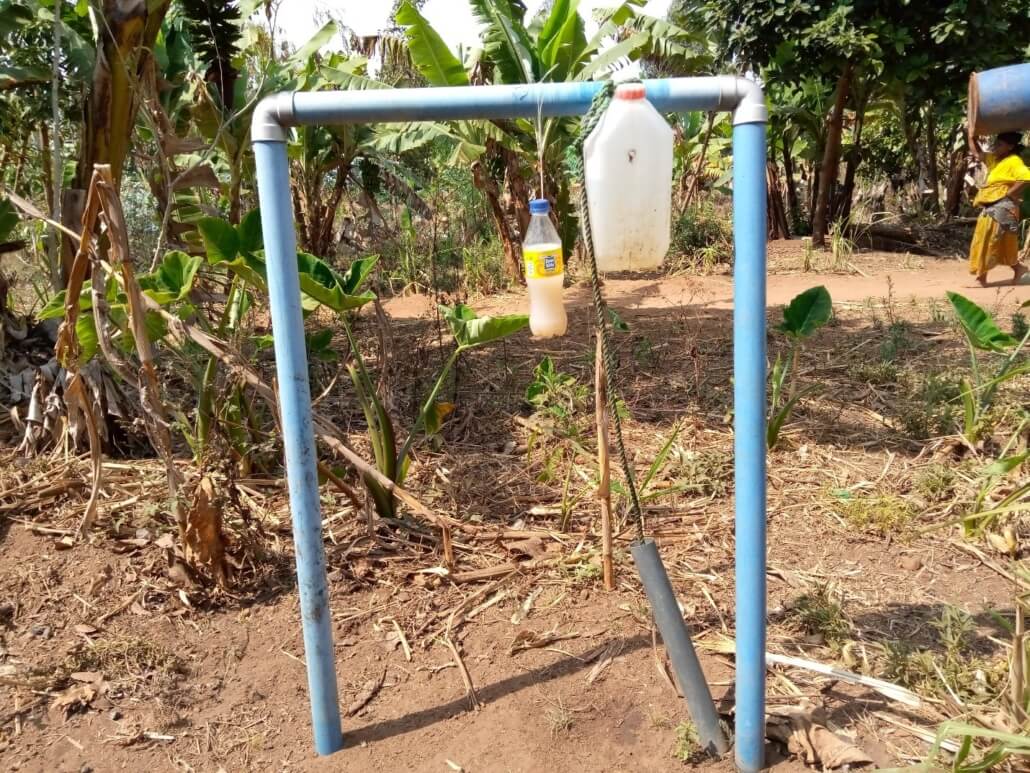
“I tell my children that it is important for them to wash their hands with clean water and soap to protect themselves from diseases like diarrhea, which was a great hindrance before. It is something which gives me peace. I have also recognized that when my hands are clean, I also feel comfortable.”
– Fanista Mgata, RCP mom
How has the fortified porridge helped supplement your family’s nutrition? What other foods does your family commonly eat?
The porridge was very helpful to me and my children. When I started receiving it, my child Lidya was only two months old. I was very weak and the amount of breast milk I had was not enough for my child. But when we started to eat the fortified porridge from the program, I became very healthy and had enough breast milk to feed her. My weight and my child’s weight increased to normal levels. My first child and I used to drink the porridge twice or up to three times per day and Lidya as well once she was six months old. Sometimes my children would refuse to eat any other food and only wanted porridge, so it was very helpful. Since we graduated from getting the porridge from the program, I decided to make the porridge on my own so that my children can have it every morning.
Other foods that we eat are ugali, beans, vegetables, meat, rice, potatoes, yams, cassava, sardines, fish, and fruits like bananas and avocados. We always have three meals per day. My children eat everything that I prepare for them, but their favorites are sardines, ugali, and meat.
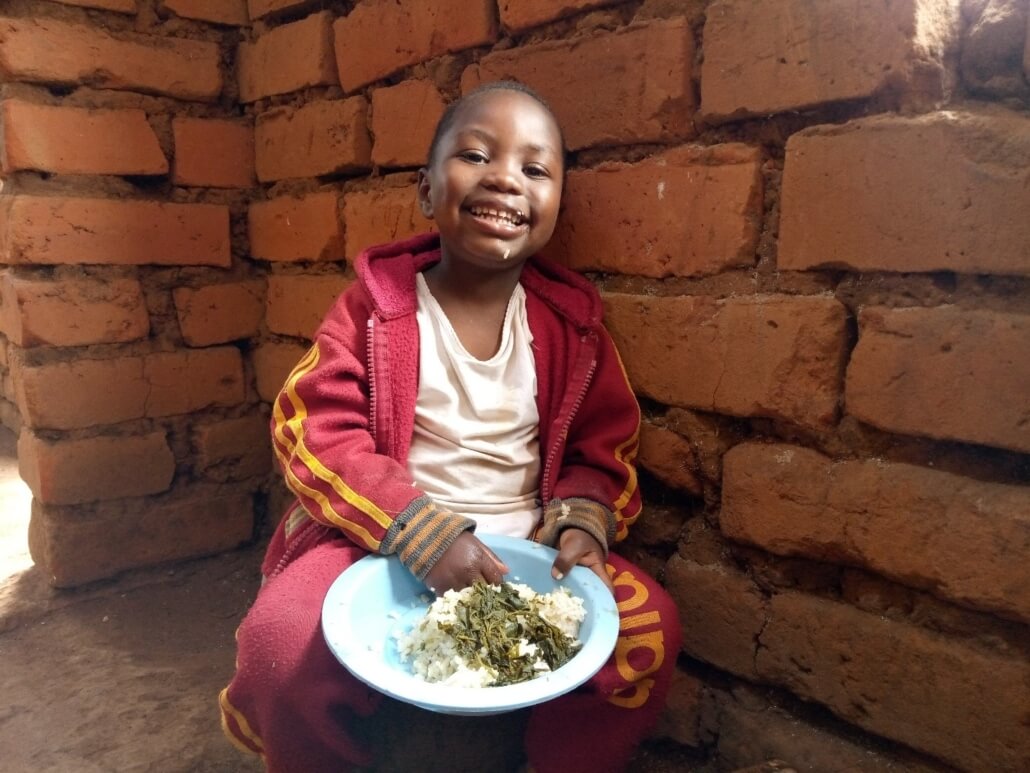
What are the personal changes you’ve made in your life since joining RCP that have resulted in better health for you and you children? What are you doing differently now?
We have taken up the practice of washing our hands. We were not washing hands properly and with no soap but since we got the workshop, we wash hands as much as we can to prevent ourselves from diseases and we are all healthy now.
We have changed our eating behavior as well. We used to eat something filling like ugali in the morning and we would go without more food until the evening, but now I must prepare three meals per day and we are no longer eating ugali in the morning. For breakfast I usually prepare porridge or tea with something light and have ugali in the afternoon. Also, ever since we were taught the importance of boiling drinking water, I have been boiling it and I have never allowed a day to pass with no drinking water inside the house.
I provide a variety of food, as much as I can, to the family to keep them healthy and strong. I also take time to play with my children. We jump rope and I sing with them. I also take time to teach them numbers and how to write.
If you have been using the clinic services in Ipalamwa, how are they different from medical services available before the clinic opened?
The services at the Ipalamwa General Clinic are very organized and professional. I used to suffer from back pain, but since I went to the Ipalamwa General Clinic and was given medication, I don’t have any more pain. They are all about helping people because I remember one day my child had a very high fever. It was on Christmas Day when people are not working, but I consulted the doctor from Ipalamwa General Clinic and I got immediate help. The services there are amazing.
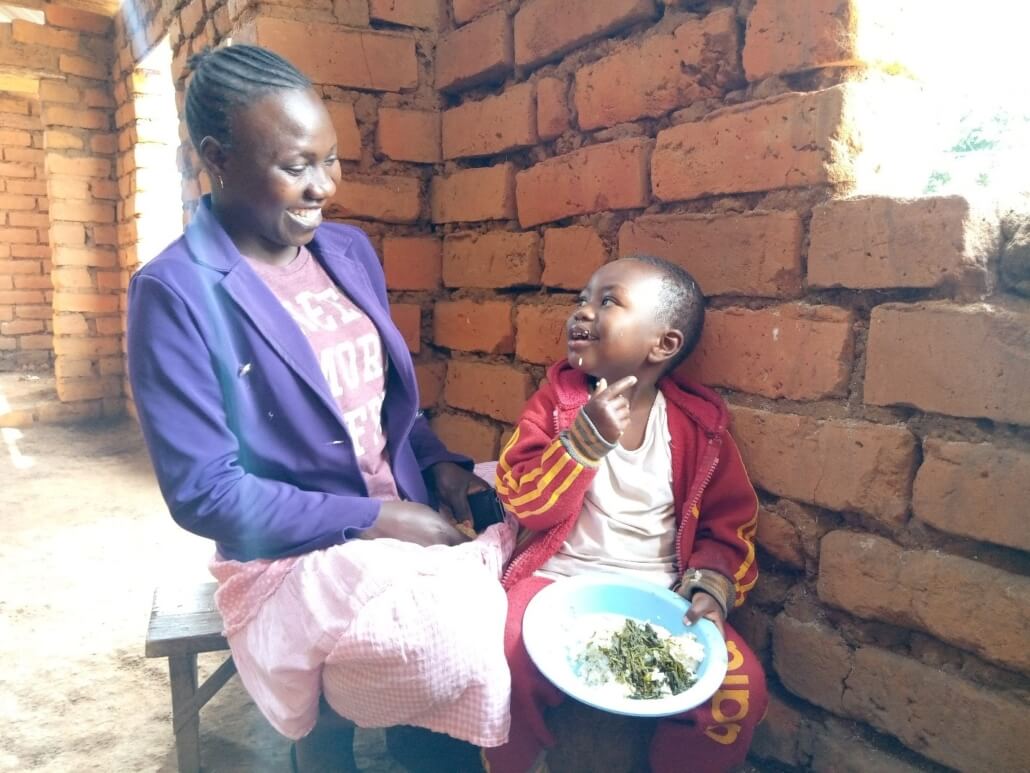
Can you tell us a little bit about your children, Fanista? How did you choose their names?
My children love to play with their fellows around the village. Gaudencia also loves to help me with some domestic activities and Lidya loves playing cooking. She always watches me in the kitchen when I’m cooking and then she does the same. As they grow older, I will continue to learn more about their interests. I named Gaudencia after a child I met a very long time ago. She was very intelligent and she liked reading books. I was impressed to the point of giving the name to my child. Lidya was named by her father since he likes the name so much. Gaudencia’s performance at school is also good. She loves the Rise Against Hunger meals that she eats at school every day and she doesn’t like days off from school because she doesn’t get the meals those days. She has become very active, even after school. In general, the program has been very helpful to the whole family. I hope the program will still be helpful in my children’s future.
“Gaudencia’s performance at school is also good. She loves the Rise Against Hunger meals that she eats at school every day and she doesn’t like days off from school because she doesn’t get the meals those days. She has become very active, even after school. In general, the program has been very helpful to the whole family.”
– Fanista Mgata, RCP mom
What are your family’s biggest challenges? How do you try to address them?
There are many challenges in life, but facing the challenge is always the solution. Sometimes there are financial issues, but as a woman, I do my best to make sure that everything works out in the family, especially our basic needs.
What are you most proud of in your family? What do you hope for in the future?
I feel so happy when I see my children. Remembering the day of delivery always makes me love them to the maximum. I love my children so much. In the next few years to come, we have a plan to finish up our house, which we already started to build, before we have another child so that we can create good environment for every child in our family. We are also planning to expand farms, too, so that we can grow wheat.
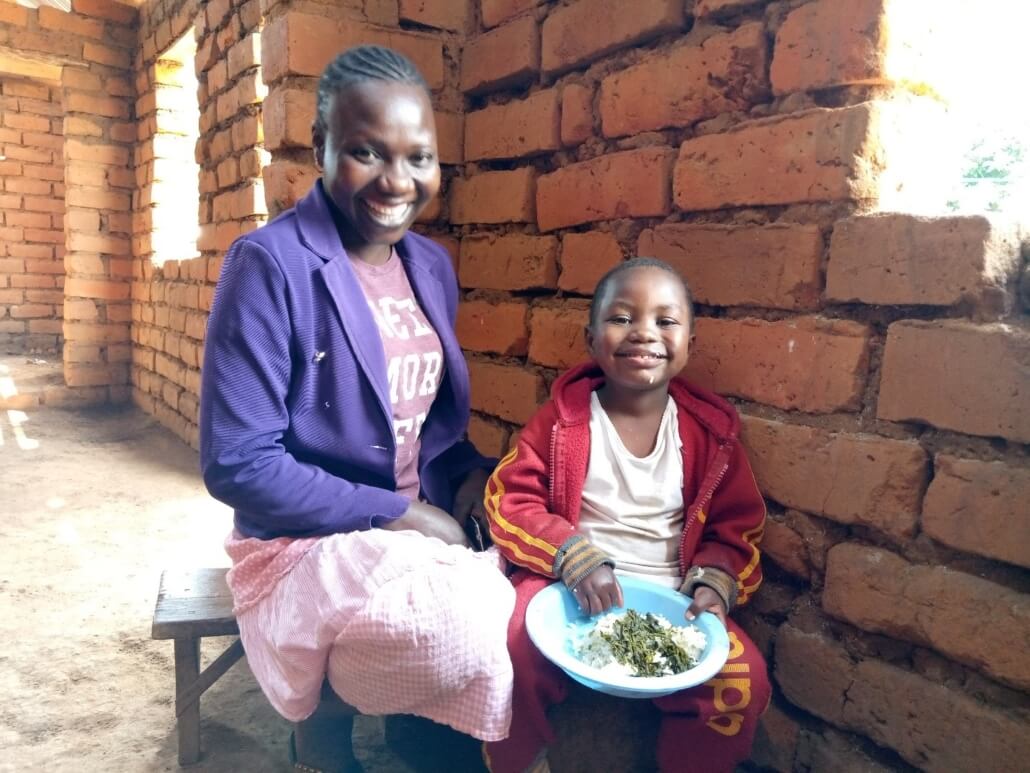
What are your visions for the future and what values from your ancestors and cultures are you trying to maintain?
Our culture here is always to help and support each other in case of celebrations or funerals. Everyone must participate in other people’s activities. If a person is not participatory, on the day she/he needs help, people will not attend. Helping each other is a cultural must do.
What do you most appreciate about your village?
Ipalamwa is a very nice place with good land and a lot of fruits. It is very rare to struggle with food to eat because there is plenty. It is a nicer land than Idunda where I was born.
Do you celebrate birthdays?
No, not really, but we usually prepare something special to eat with drinks in our family. We don’t invite anyone else since we can’t afford food for everyone. While we are eating, we usually explain to our child about their birthday and how old they are so that they can always be aware.

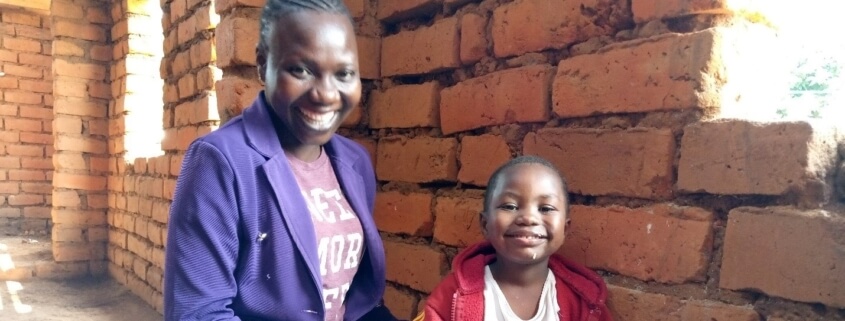
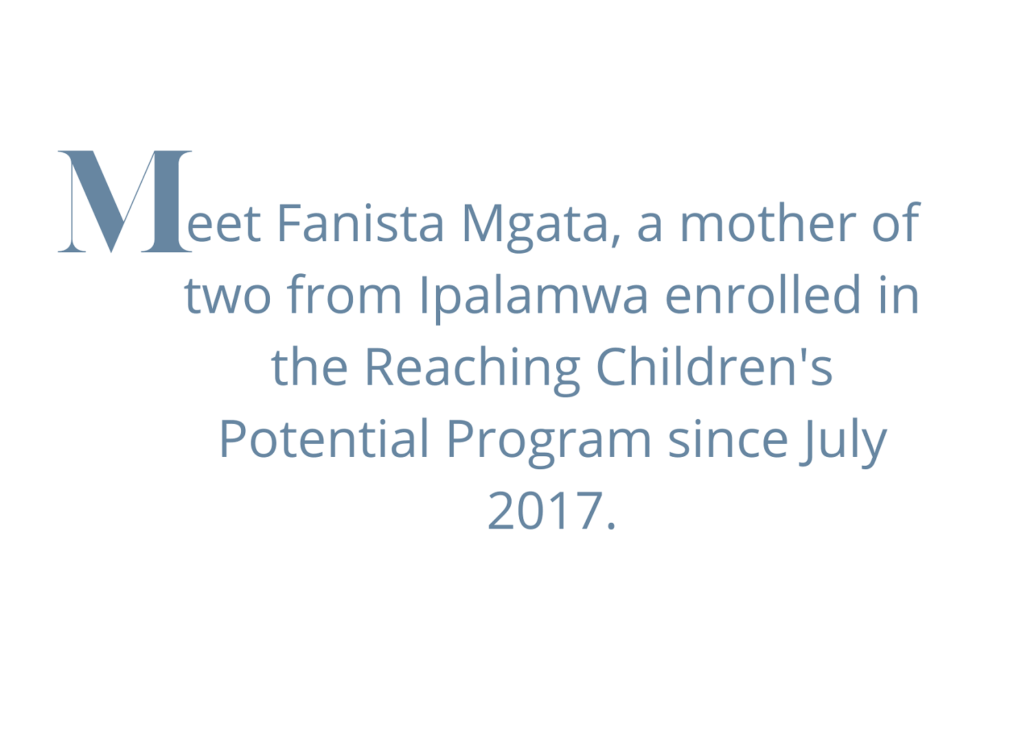
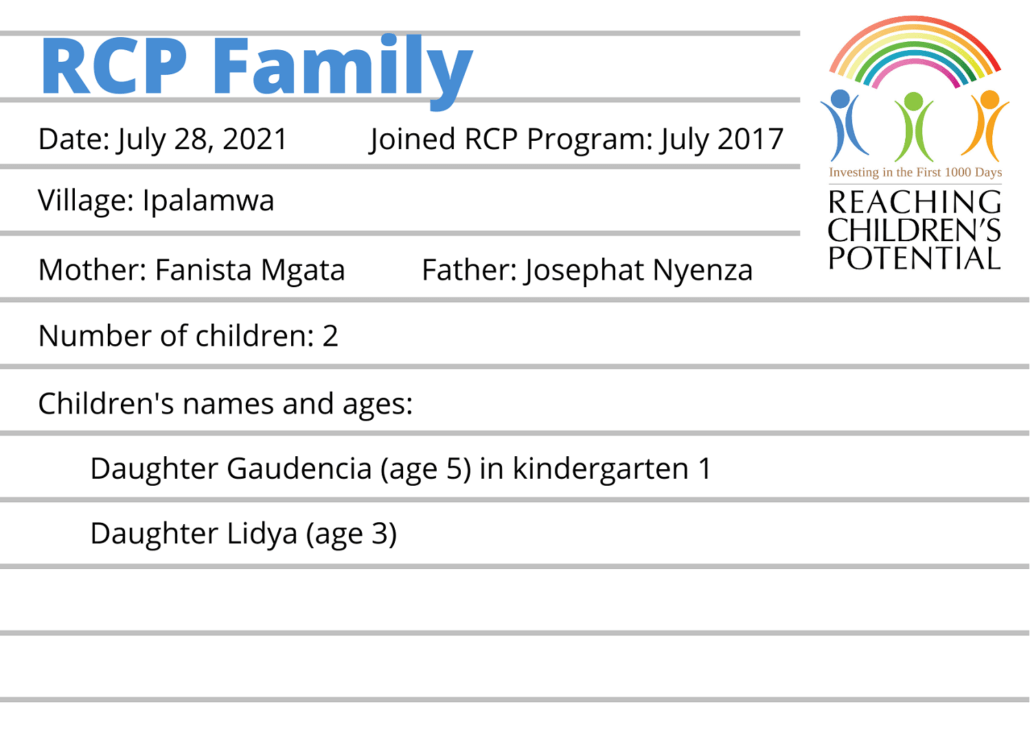


Leave a Reply
Want to join the discussion?Feel free to contribute!